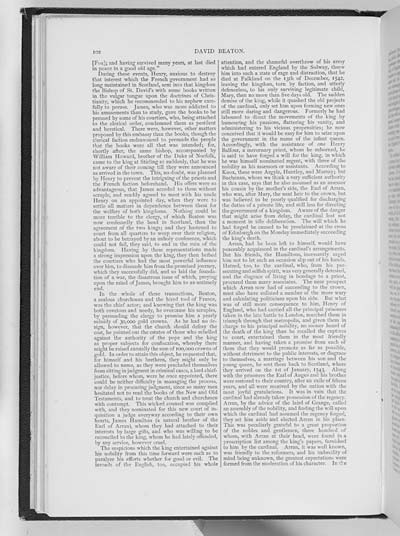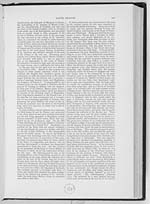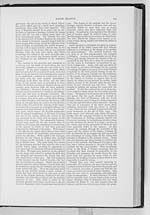102
[Fox]; and having survived many years, at last died
in peace in a good old age."
During these events, Henry, anxious to destroy
that interest which the French government had so
long maintained in Scotland, sent into that kingdom
the Bishop of St. David's with some books written
in the vulgar tongue upon the doctrines of Chris-
tianity, which he recommended to his nephew care-
fully to peruse. James, who was more addicted to
his amusements than to study, gave the books to be
perused by some of his courtiers, who, being attached
to the clerical order, condemned them as pestilent
and heretical. There were, however, other matters
proposed by this embassy than the books, though the
clerical faction endeavoured to persuade the people
that the books were all that was intended; for,
shortly after, the same bishop, accompanied by
William Howard, brother of the Duke of Norfolk,
came to the king at Stirling so suddenly, that he was
not aware of their coming till they were announced
as arrived in the town. This, no doubt, was planned
by Henry to prevent the intriguing of the priests and
the French faction beforehand. His offers were so
advantageous, that James acceded to them without
scruple, and readily agreed to meet with his uncle
Henry on an appointed day, when they were to
settle all matters in dependence between them for
the welfare of both kingdoms. Nothing could be
more terrible to the clergy, of which Beaton was
now confessedly the head in Scotland, than the
agreement of the two kings; and they hastened to
court from all quarters to weep over their religion,
about to be betrayed by an unholy conference, which
could not fail, they said, to end in the ruin of the
kingdom. Having by these representations made
a strong impression upon the king, they then bribed
the courtiers who had the most powerful influence
over him, to dissuade him from the promised journey,
which they successfully did, and so laid the founda-
tion of a war, the disastrous issue of which, preying
upon the mind of James, brought him to an untimely
end.
In the whole of these transactions, Beaton,
a zealous churchman and the hired tool of France,
was the chief actor; and knowing that the king was
both covetous and needy, he overcame his scruples,
by persuading the clergy to promise him a yearly
subsidy of 30,000 gold crowns. As he had no de-
sign, however, that the church should defray the
cost, he pointed out the estates of those who rebelled
against the authority of the pope and the king
as proper subjects for confiscation, whereby there
might be raised annually the sum of 100, 000 crowns of
gold. In order to attain this object, he requested that,
for himself and his brethren, they might only be
allowed to name, as they were precluded themselves
from sitting in judgment in criminal cases, a lord chief-
justice, before whom, were he once appointed, there
could be neither difficulty in managing the process,
nor delay in procuring judgment, since so many men
hesitated not to read the books of the New and Old
Testaments, and to treat the church and churchmen
with contempt. This wicked counsel was complied
with, and they nominated for this new court of in-
quisition a judge everyway according to their own
hearts, James Hamilton (a natural brother of the
Earl of Arran), whom they had attached to their
interests by large gifts, and who was willing to be
reconciled to the king, whom he had lately offended,
by any service, however cruel.
The suspicions which the king entertained against
his nobility from this time forward were such as to
paralyze his efforts whether for good or evil. The
inroads of the English, too, occupied his whole
attention, and the shameful overthrow of his army
which had entered England by the Sol way, threw
him into such a state of rage and distraction, that he
died at Falkland on the 13th of December, 1542,
leaving the kingdom, torn by faction, and utterly
defenceless, to his only surviving legitimate child,
Mary, then no more than five days old. The sudden
demise of the king, while it quashed the old projects
of the cardinal, only set him upon forming new ones
still more daring and dangerous. Formerly he had
laboured to direct the movements of the king by
humouring his passions, flattering his vanity, and
administering to his vicious propensities; he now
conceived that it would be easy for him to seize upon
the government in the name of the infant queen.
Accordingly, with the assistance of one Henry
Balfour, a mercenary priest, whom he suborned, he
is said to have forged a will for the king, in which
he was himself nominated regent, with three of the
nobility as his assessors or assistants. According to
Knox, these were Argyle, Huntley, and Murray; but
Buchanan, whom we think a very sufficient authority
in this case, says that he also assumed as an assessor
his cousin by the mother's side, the Earl of Arran,
who was, after Mary, the next heir to the crown, but
was believed to be poorly qualified for discharging
the duties of a private life, and still less for directing
the government of a kingdom. Aware of the danger
that might arise from delay, the cardinal lost not
a moment in idle deliberation. The will which he
had forged he caused to be proclaimed at the cross
of Edinburgh on the Monday immediately succeeding
the king's death.
Arran, had he been left to himself, would have
peaceably acquiesced in the cardinal's arrangements.
But his friends, the Hamiltons, incessantly urged
him not to let such an occasion slip out of his hands.
Hatred, too, to the cardinal, who, from his per-
secuting and selfish spirit, was very generally detested,
and the disgrace of living in bondage to a priest,
procured them many associates. The near prospect
which Arran now had of succeeding to the crown,
must also have enlisted a number of the more wary
and calculating politicians upon his side. But what
was of still more consequence to him, Henry of
England, who had carried all the principal prisoners
taken in the late battle to London, marched them in
triumph through that metropolis, and given them in
charge to his principal nobility, no sooner heard of
the death of the king than he recalled the captives
to court, entertained them in the most friendly
manner, and having taken a promise from each of
them that they would promote as far as possible,
without detriment to the public interests, or disgrace
to themselves, a marriage between his son and the
young queen, he sent them back to Scotland, where
they arrived on the 1st of January, 1543. Along
with the prisoners the Earl of Angus and his brother
were restored to their country, after an exile of fifteen
years, and all were received by the nation with the
most joyful gratulations. It was in vain that the
cardinal had already taken possession of the regency.
Arran, by the advice of the laird of Grange, called
an assembly of the nobility, and finding the will upon
which the cardinal had assumed the regency forged,
they set him aside and elected Arran in his place.
This was peculiarly grateful to a great proportion
of the nobles and gentlemen, three hundred of
whom, with Arran at their head, were found in a
proscription list among the king's papers, furnished
to him by the cardinal. Arran, it was well known,
was friendly to the reformers, and his imbecility of
mind being unknown, the greatest expectations were
formed from the moderation of his character. In the

![]() Universal Viewer |
Universal Viewer | ![]() Mirador |
Large image | Transcription
Mirador |
Large image | Transcription
![]()

